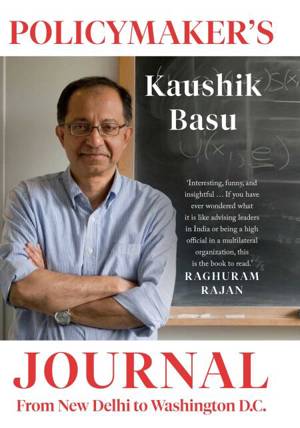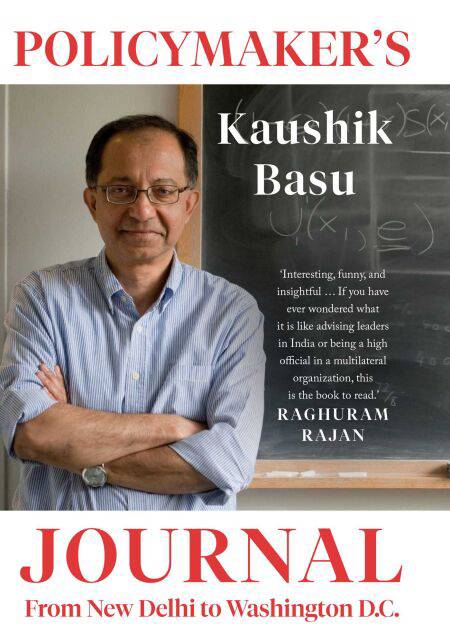
- Afhalen na 1 uur in een winkel met voorraad
- Gratis thuislevering in België vanaf € 30
- Ruim aanbod met 7 miljoen producten
- Afhalen na 1 uur in een winkel met voorraad
- Gratis thuislevering in België vanaf € 30
- Ruim aanbod met 7 miljoen producten
Zoeken
€ 14,53
+ 14 punten
Omschrijving
This book charts the course of Kaushik Basu’s career over seven years, as he moved out of the cloisters of academe to the frenetic world of policymaking, first in India as Chief Economic Adviser to the Indian Government and after that as Chief Economist at the World Bank in Washington.
The Indian years were a period of high inflation, growth challenges (as the global financial crisis arrived in India), and also a remarkable growth recovery story, with India moving past China’s GDP growth rate. There were corruption scandals breaking, causing widespread street protests, a lot of late-night decision-making, which one knew would rock the stock market the next day, and getting to know politicians who were outstanding as statesmen in the midst of all this, and also many who were not.
The World Bank years weren’t that close to actual policymaking, but nevertheless breath-taking in their scope. They ranged from interacting with policymakers in tiny remote countries like Samoa to gigantic nations with comparable heft, such as China. It entailed sitting down with leading researchers to compute and announce global numbers on extreme poverty and rankings on how easy it is to do business in different countries (fully aware that there would be calls from irate finance ministers as soon as these were published). And there was the handling of politics within the World Bank, which could actually be as enjoyable as any global economic problem!
This book is a revised version of the diary that Kaushik Basu kept for seven years. Revised because he often wrote the diary in a hurry at the day’s or even week’s end. He has now inserted some reflections in retrospect, without altering any descriptions of what actually happened.
The Indian years were a period of high inflation, growth challenges (as the global financial crisis arrived in India), and also a remarkable growth recovery story, with India moving past China’s GDP growth rate. There were corruption scandals breaking, causing widespread street protests, a lot of late-night decision-making, which one knew would rock the stock market the next day, and getting to know politicians who were outstanding as statesmen in the midst of all this, and also many who were not.
The World Bank years weren’t that close to actual policymaking, but nevertheless breath-taking in their scope. They ranged from interacting with policymakers in tiny remote countries like Samoa to gigantic nations with comparable heft, such as China. It entailed sitting down with leading researchers to compute and announce global numbers on extreme poverty and rankings on how easy it is to do business in different countries (fully aware that there would be calls from irate finance ministers as soon as these were published). And there was the handling of politics within the World Bank, which could actually be as enjoyable as any global economic problem!
This book is a revised version of the diary that Kaushik Basu kept for seven years. Revised because he often wrote the diary in a hurry at the day’s or even week’s end. He has now inserted some reflections in retrospect, without altering any descriptions of what actually happened.
Specificaties
Betrokkenen
- Auteur(s):
- Uitgeverij:
Inhoud
- Aantal bladzijden:
- 345
- Taal:
- Engels
Eigenschappen
- Productcode (EAN):
- 9788195057153
- Verschijningsdatum:
- 5/07/2021
- Uitvoering:
- E-book
- Beveiligd met:
- Adobe DRM
- Formaat:
- ePub

Alleen bij Standaard Boekhandel
+ 14 punten op je klantenkaart van Standaard Boekhandel
Beoordelingen
We publiceren alleen reviews die voldoen aan de voorwaarden voor reviews. Bekijk onze voorwaarden voor reviews.







